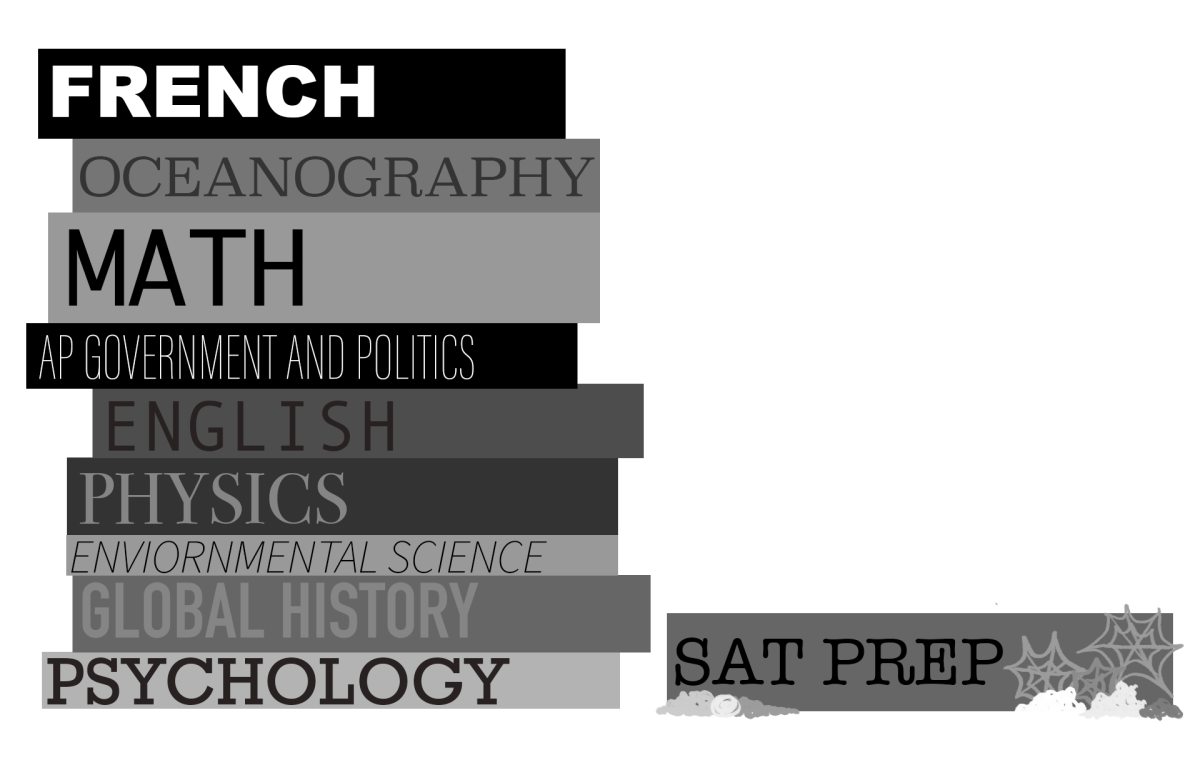As we near the end of March, we start to approach AP examinations. Taking place throughout the first two weeks of May, these tests are the College Board’s method of determining how well students have learned various advanced subjects during the year. If a student is lucky enough to score a four or a five on their AP test, they can submit it to their future college to waive certain requirements. AP classes may seem like a beneficial way for scholars to put forth meaningful curriculums about various subjects and test students in an effective manner. However, these tests are fundamentally flawed. AP classes are the wrong way to learn because students are taught for the test instead of tested on what they are taught. Since there is so much packed into an AP curriculum, sometimes there is no wiggle room for teachers to take the curriculum and make it meaningful.
In AP classes, there is too much material for teachers to provide a meaningful education experience. One of the most fundamental parts of education is the fact that teachers can take a general curriculum and choose a set of activities that deliver the content to students in an insightful and interesting manner. For example, in Government Honors, one class did a Senate simulation as a part of their unit about Congress. The hands-on experience involved days of research, preparation, and a full class period dedicated to replicating how Senators go about their meetings. Senior Izzy Bowser commented that “this helped me understand how the government works because I got to witness it first-hand.” Clearly, an experience such as this one supports a strong education.
Unfortunately, the AP Government curriculum does not leave room for students to take part in such intellectually stimulating activities. For their unit about Congress, AP students were asked to read a textbook and watch Khan Academy videos about the subject. They also did a brief project where they made a basic powerpoint about committees, but it was nowhere near as intellectually challenging and rewarding as the Senate simulation. Since they have so much content to get through, AP Government classes do not have time to provide these activities to their students. What is education if you can’t find meaning in what you are learning? AP government students wouldn’t know.
It is important to note that there are some intellectually challenging activities in AP classes. For example, AP Biology involves many different labs, each designed to maximize students’ scientific knowledge. The issue is that there would be significantly more of these activities if AP teachers weren’t under the pressure to teach to the test. With such a large amount of content and so little time, AP teachers are forced to sacrifice certain valuable aspects of learning.
The AP College Board produces curriculums that simply have too much material in them to give students a thorough understanding of the subject. If these classes were less rigorous and paced so teachers could provide students with activities to understand the material, our learning experience would be more worthwhile. At LM, we have valuable teachers with insightful ideas on how to teach concepts, but many are stifled by the magnitude of the AP curriculum. It is clear that the College Board needs to make a change.




